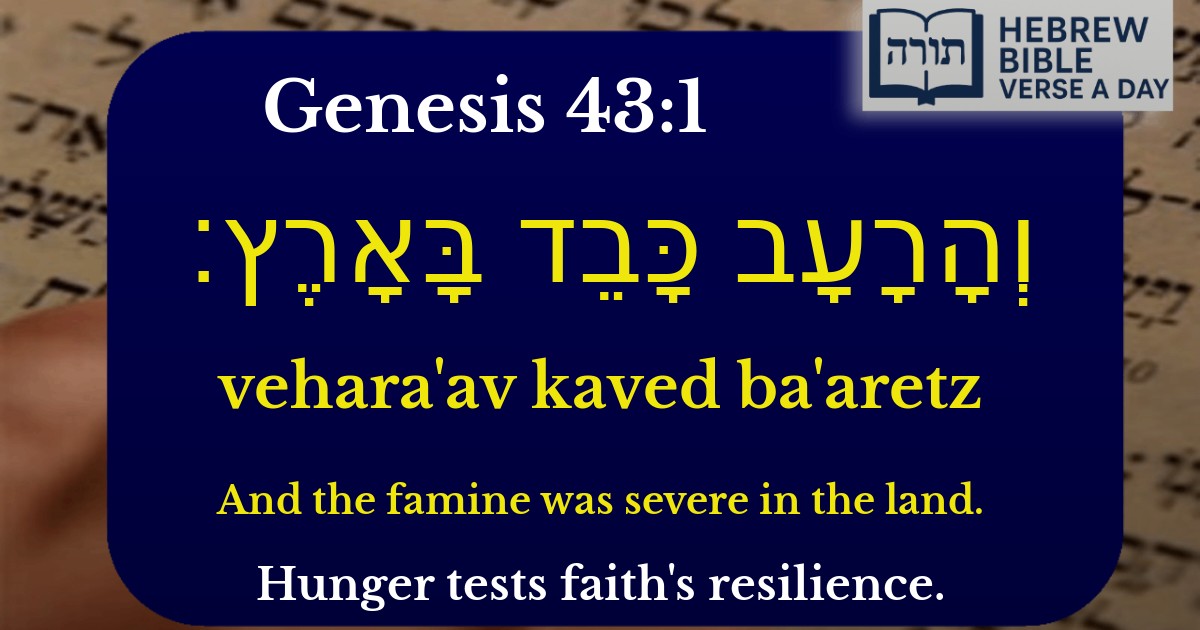Join Our Newsletter To Be Informed When New Videos Are Posted
Join the thousands of fellow Studends who rely on our videos to learn how to read the bible in Hebrew for free!
Hebrew Text
וְהָרָעָב כָּבֵד בָּאָרֶץ׃
English Translation
And the famine was severe in the land.
Transliteration
Vehara'av kaved ba'aretz
Hebrew Leining Text
וְהָרָעָ֖ב כָּבֵ֥ד בָּאָֽרֶץ׃
וְהָרָעָ֖ב כָּבֵ֥ד בָּאָֽרֶץ׃
🎵 Listen to leining
Parasha Commentary
📚 Talmud Citations
This verse is not quoted in the Talmud.


Context of the Verse
The verse "וְהָרָעָב כָּבֵד בָּאָרֶץ" (And the famine was severe in the land) appears in Bereishit (Genesis) 43:1, describing the famine during the time of Yaakov and his sons. This famine was one of the tests and challenges faced by the family of Yaakov, ultimately leading to their descent to Egypt.
Rashi's Commentary
Rashi explains that the word "כָּבֵד" (severe) implies that the famine was heavy and oppressive, not merely a temporary shortage. He cites the Midrash (Bereishit Rabbah 91:5), which states that this famine was one of the ten great famines destined to occur in history, emphasizing its severity as a divinely ordained trial.
Rambam's Perspective
Rambam (Maimonides), in Moreh Nevuchim (Guide for the Perplexed), discusses famines as part of divine providence, teaching that such events serve to awaken people to repentance and reliance on Hashem. The severity of this famine was a means to bring about the fulfillment of the prophecy given to Avraham (Bereishit 15:13) regarding the descent to Egypt.
Midrashic Interpretations
Halachic and Ethical Lessons
The severity of the famine underscores the importance of bitachon (trust in Hashem) and achdut (unity), as Yaakov's family had to rely on one another and on divine intervention to survive. The Talmud (Ta'anit 10b) teaches that famine is a call for introspection and tzedakah (charity), as material scarcity often reflects spiritual deficiencies.